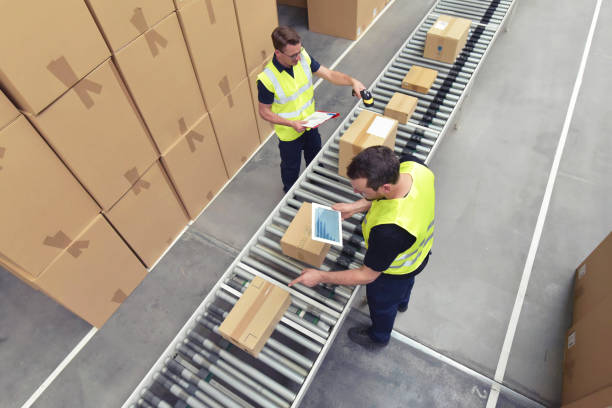Innovative technologies transforming modern logistics operations
The logistics industry stands at the forefront of technological revolution, fundamentally changing how goods move across the globe. From artificial intelligence to blockchain solutions, modern logistics operations are becoming increasingly sophisticated, efficient, and responsive to consumer demands. These technological advances are not merely incremental improvements but represent a complete paradigm shift in how supply chains operate, offering unprecedented visibility, control, and optimization capabilities that were unimaginable just a decade ago.

How AI and Automation Are Reshaping Supply Chain Management
Artificial intelligence and automation have emerged as game-changing forces in supply chain management, revolutionizing everything from demand forecasting to warehouse operations. Machine learning algorithms now analyze vast datasets to predict consumer behavior patterns, enabling logistics providers to optimize inventory levels and reduce waste significantly. Automated sorting systems in distribution centers can process thousands of packages per hour with minimal human intervention, while AI-powered route optimization ensures delivery vehicles take the most efficient paths.
Robotic process automation (RPA) streamlines administrative tasks, reducing processing times for customs documentation, invoicing, and tracking updates. Predictive maintenance powered by AI monitors vehicle fleets and warehouse equipment, preventing costly breakdowns before they occur. These technologies collectively reduce operational costs while improving service reliability, creating a more resilient supply chain ecosystem that can adapt quickly to disruptions.
The Role of Smart Data in Optimizing Transportation and Delivery
Smart data analytics has become the backbone of modern logistics operations, providing real-time insights that drive informed decision-making across the entire supply chain. Internet of Things (IoT) sensors embedded in vehicles, containers, and packages continuously collect data on location, temperature, humidity, and handling conditions. This information flows into centralized platforms where advanced algorithms process and analyze patterns to identify optimization opportunities.
Transportation management systems now leverage this smart data to dynamically adjust routes based on traffic conditions, weather patterns, and delivery priorities. Fleet managers can monitor driver behavior, fuel consumption, and vehicle performance in real-time, implementing corrective measures instantly. Predictive analytics help anticipate potential delays, allowing proactive communication with customers and alternative planning. This data-driven approach has transformed logistics from a reactive industry to a proactive one, where problems are solved before they impact operations.
Sustainable Logistics Solutions for the Future of Global Trade
Environmental sustainability has become a critical focus for logistics companies, driving innovation in eco-friendly technologies and practices. Electric and hybrid delivery vehicles are rapidly replacing traditional diesel fleets, particularly for last-mile delivery operations in urban areas. Advanced route optimization algorithms now factor in carbon footprint calculations, helping companies achieve environmental goals while maintaining operational efficiency.
Sustainable packaging solutions utilize biodegradable materials and smart design to reduce waste throughout the supply chain. Consolidation technologies group shipments more effectively, reducing the number of vehicles required and minimizing emissions. Some logistics providers are implementing carbon offset programs and investing in renewable energy sources for their facilities, creating truly sustainable logistics networks that benefit both business and environmental objectives.
Emerging Technologies Shaping Logistics Operations
Beyond AI and IoT, several emerging technologies are poised to further transform logistics operations. Blockchain technology enhances supply chain transparency by creating immutable records of transactions and product movements, reducing fraud and improving traceability. Drone delivery systems are expanding beyond pilot programs into commercial operations, particularly for urgent medical supplies and remote area deliveries.
Augmented reality applications assist warehouse workers in picking and packing operations, reducing errors and training time. 5G networks enable faster data transmission and more reliable communication between connected devices, supporting the increasing digitization of logistics operations. These technologies work synergistically to create more intelligent, responsive, and efficient logistics networks.
| Technology Solution | Provider | Key Features | Implementation Cost |
|---|---|---|---|
| Warehouse Management System | Manhattan Associates | Real-time inventory tracking, automated picking | €50,000-€200,000 |
| Fleet Management Platform | Verizon Connect | GPS tracking, driver monitoring, maintenance alerts | €30-€60 per vehicle/month |
| AI-Powered Route Optimization | HERE Technologies | Dynamic routing, traffic analysis, delivery prediction | €5,000-€25,000 annual license |
| IoT Sensor Network | Bosch Connected Logistics | Temperature monitoring, location tracking, condition alerts | €10-€50 per sensor |
Prices, rates, or cost estimates mentioned in this article are based on the latest available information but may change over time. Independent research is advised before making financial decisions.
Integration Challenges and Future Outlook
While technological advancement offers tremendous opportunities, logistics companies face significant challenges in integrating these innovations into existing operations. Legacy systems often require substantial upgrades or complete replacement, demanding significant capital investment and workforce retraining. Data security concerns grow as logistics networks become increasingly connected, requiring robust cybersecurity measures to protect sensitive information.
The future of logistics lies in creating seamless ecosystems where all technologies work together harmoniously. As these systems mature and become more affordable, even smaller logistics providers will access advanced capabilities previously available only to industry giants. This democratization of technology promises to create more competitive and innovative logistics markets.
The transformation of modern logistics operations through innovative technologies represents more than operational improvement—it signifies a fundamental shift toward more intelligent, sustainable, and responsive supply chains. As these technologies continue evolving and integrating, the logistics industry will become increasingly capable of meeting the complex demands of global commerce while maintaining environmental responsibility and operational excellence.




